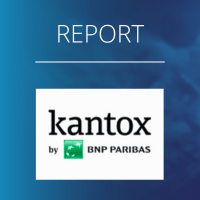 https://treasuryxl.com/wp-content/uploads/2025/02/KantoxBLOGS-featured-3.png
200
200
treasuryXL
https://treasuryxl.com/wp-content/uploads/2018/07/treasuryXL-logo-300x56.png
treasuryXL2025-07-02 07:00:212025-06-30 16:36:19Removing FX Gains & Losses: Balance Sheet Hedging Redefined
https://treasuryxl.com/wp-content/uploads/2025/02/KantoxBLOGS-featured-3.png
200
200
treasuryXL
https://treasuryxl.com/wp-content/uploads/2018/07/treasuryXL-logo-300x56.png
treasuryXL2025-07-02 07:00:212025-06-30 16:36:19Removing FX Gains & Losses: Balance Sheet Hedging RedefinedForeign exchange (FX) refers to the buying and selling of currencies on the foreign exchange market. In the context of corporate treasury, FX risk refers to the risk that fluctuations in exchange rates between different currencies will impact the value of a company’s financial transactions or investments. This can be a significant risk for companies that operate internationally, as they may be exposed to multiple currencies and therefore face the possibility of significant changes in the value of their assets and liabilities due to exchange rate movements.
FX Risk Strategies
To manage FX risk, corporate treasury departments can use a variety of strategies, including:
- Currency forward contracts: These allow a company to lock in a fixed exchange rate for a future transaction. For example, if a company knows it will need to make a payment in euros in six months’ time, it can enter into a forward contract to sell euros at a predetermined exchange rate. This helps to protect the company against the risk of exchange rate fluctuations between the time the contract is entered into and the time the payment is made.
- Currency options: These give a company the right but not the obligation to buy or sell a currency at a specific exchange rate at some point in the future. For example, a company may purchase a call option that gives it the right to buy euros at a predetermined exchange rate within a certain timeframe. This can provide protection against the risk of exchange rate movements, as the company can exercise the option if the exchange rate moves in its favor.
- Currency hedges: These involve taking a position in a financial instrument, such as a currency swap or money market instrument, to offset the potential impact of exchange rate fluctuations on a company’s financial position. For example, a company may enter into a currency swap agreement to exchange a set amount of one currency for another at a predetermined exchange rate. This can help to reduce the impact of exchange rate movements on the company’s financial position.
- Netting and consolidation: In some cases, a company may be able to reduce its exposure to FX risk by netting out or consolidating its currency positions. For example, if a company has both euro-denominated receipts and payments coming due in the same time period, it can net these out to reduce the impact of exchange rate movements on its cash flow.
- Centralized treasury management: Some companies choose to centralize their treasury management functions, including FX risk management, in order to get a clearer view of their overall exposure to currency risk and to streamline the process of managing that risk.
It’s important for corporate treasury departments to carefully consider their exposure to FX risk and to implement appropriate risk management strategies to protect the company’s financial position. This may involve a combination of the above strategies, as well as other measures such as monitoring exchange rates and assessing the impact of potential changes on the company’s financial position.
FX Risk Management Summary
In summary, FX risk management is a crucial part of corporate treasury management, and involves the use of a range of strategies to mitigate the impact of exchange rate fluctuations on the company’s financial position. These strategies may include the use of currency forward contracts, options, hedges, netting and consolidation, and centralized treasury management. By implementing appropriate risk management measures, corporate treasury departments can help to protect the company’s financial position and ensure that it is well positioned to navigate the complexities of the global business environment.
Click and Scroll! Here are more articles that you might like…
 https://treasuryxl.com/wp-content/uploads/2025/02/KantoxBLOGS-featured-3.png
200
200
treasuryXL
https://treasuryxl.com/wp-content/uploads/2018/07/treasuryXL-logo-300x56.png
treasuryXL2025-07-02 07:00:212025-06-30 16:36:19Removing FX Gains & Losses: Balance Sheet Hedging Redefined
https://treasuryxl.com/wp-content/uploads/2025/02/KantoxBLOGS-featured-3.png
200
200
treasuryXL
https://treasuryxl.com/wp-content/uploads/2018/07/treasuryXL-logo-300x56.png
treasuryXL2025-07-02 07:00:212025-06-30 16:36:19Removing FX Gains & Losses: Balance Sheet Hedging Redefined https://treasuryxl.com/wp-content/uploads/2025/06/KantoxBLOGS-featured-9.png
200
200
treasuryXL
https://treasuryxl.com/wp-content/uploads/2018/07/treasuryXL-logo-300x56.png
treasuryXL2025-06-19 10:00:062025-06-17 12:54:15How Evaneos Protects Margins from FX Risk While Paying Suppliers in their Local Currencies
https://treasuryxl.com/wp-content/uploads/2025/06/KantoxBLOGS-featured-9.png
200
200
treasuryXL
https://treasuryxl.com/wp-content/uploads/2018/07/treasuryXL-logo-300x56.png
treasuryXL2025-06-19 10:00:062025-06-17 12:54:15How Evaneos Protects Margins from FX Risk While Paying Suppliers in their Local Currencies https://treasuryxl.com/wp-content/uploads/2025/04/GTreasury-BLOGS-featured-10.png
200
200
treasuryXL
https://treasuryxl.com/wp-content/uploads/2018/07/treasuryXL-logo-300x56.png
treasuryXL2025-06-18 07:00:192025-06-13 06:58:175 Silent Killers of Cash Flow Forecasting Accuracy and How to Eliminate Them
https://treasuryxl.com/wp-content/uploads/2025/04/GTreasury-BLOGS-featured-10.png
200
200
treasuryXL
https://treasuryxl.com/wp-content/uploads/2018/07/treasuryXL-logo-300x56.png
treasuryXL2025-06-18 07:00:192025-06-13 06:58:175 Silent Killers of Cash Flow Forecasting Accuracy and How to Eliminate Them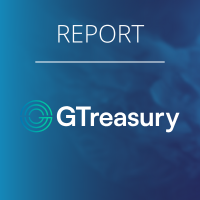 https://treasuryxl.com/wp-content/uploads/2025/05/GTreasury-BLOGS-featured-12.png
200
200
treasuryXL
https://treasuryxl.com/wp-content/uploads/2018/07/treasuryXL-logo-300x56.png
treasuryXL2025-05-27 07:00:212025-05-27 08:54:00Cash Forecasting Accuracy Measurement
https://treasuryxl.com/wp-content/uploads/2025/05/GTreasury-BLOGS-featured-12.png
200
200
treasuryXL
https://treasuryxl.com/wp-content/uploads/2018/07/treasuryXL-logo-300x56.png
treasuryXL2025-05-27 07:00:212025-05-27 08:54:00Cash Forecasting Accuracy Measurement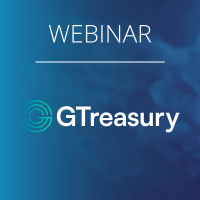 https://treasuryxl.com/wp-content/uploads/2025/05/GTreasury-BLOGS-featured-11.png
200
200
treasuryXL
https://treasuryxl.com/wp-content/uploads/2018/07/treasuryXL-logo-300x56.png
treasuryXL2025-05-14 07:00:132025-05-05 13:56:55Why Managing Exposures in Spreadsheets Is Costing You a Lot of Money
https://treasuryxl.com/wp-content/uploads/2025/05/GTreasury-BLOGS-featured-11.png
200
200
treasuryXL
https://treasuryxl.com/wp-content/uploads/2018/07/treasuryXL-logo-300x56.png
treasuryXL2025-05-14 07:00:132025-05-05 13:56:55Why Managing Exposures in Spreadsheets Is Costing You a Lot of Money https://treasuryxl.com/wp-content/uploads/2025/05/Live-Session-TreasurySpring-200-3.png
200
200
treasuryXL
https://treasuryxl.com/wp-content/uploads/2018/07/treasuryXL-logo-300x56.png
treasuryXL2025-05-12 07:00:542025-05-08 14:57:36Recap & Recording: How To Find High Ground When The Waters Are Rising
https://treasuryxl.com/wp-content/uploads/2025/05/Live-Session-TreasurySpring-200-3.png
200
200
treasuryXL
https://treasuryxl.com/wp-content/uploads/2018/07/treasuryXL-logo-300x56.png
treasuryXL2025-05-12 07:00:542025-05-08 14:57:36Recap & Recording: How To Find High Ground When The Waters Are Rising https://treasuryxl.com/wp-content/uploads/2025/05/money-2020-200.png
200
200
treasuryXL
https://treasuryxl.com/wp-content/uploads/2018/07/treasuryXL-logo-300x56.png
treasuryXL2025-05-06 07:00:252025-05-06 15:54:38Money20/20 Amsterdam is waiting for you
https://treasuryxl.com/wp-content/uploads/2025/05/money-2020-200.png
200
200
treasuryXL
https://treasuryxl.com/wp-content/uploads/2018/07/treasuryXL-logo-300x56.png
treasuryXL2025-05-06 07:00:252025-05-06 15:54:38Money20/20 Amsterdam is waiting for you https://treasuryxl.com/wp-content/uploads/2025/04/Live-Session-TreasurySpring-200-2.png
200
200
treasuryXL
https://treasuryxl.com/wp-content/uploads/2018/07/treasuryXL-logo-300x56.png
treasuryXL2025-04-30 13:08:112025-05-07 16:16:43Live Session: How To Find High Ground When The Waters Are Rising
https://treasuryxl.com/wp-content/uploads/2025/04/Live-Session-TreasurySpring-200-2.png
200
200
treasuryXL
https://treasuryxl.com/wp-content/uploads/2018/07/treasuryXL-logo-300x56.png
treasuryXL2025-04-30 13:08:112025-05-07 16:16:43Live Session: How To Find High Ground When The Waters Are Rising https://treasuryxl.com/wp-content/uploads/2025/02/KantoxBLOGS-featured-3.png
200
200
treasuryXL
https://treasuryxl.com/wp-content/uploads/2018/07/treasuryXL-logo-300x56.png
treasuryXL2025-04-30 07:00:482025-04-29 14:42:21Optimising Cash & FX Risk Management
https://treasuryxl.com/wp-content/uploads/2025/02/KantoxBLOGS-featured-3.png
200
200
treasuryXL
https://treasuryxl.com/wp-content/uploads/2018/07/treasuryXL-logo-300x56.png
treasuryXL2025-04-30 07:00:482025-04-29 14:42:21Optimising Cash & FX Risk Management https://treasuryxl.com/wp-content/uploads/2025/04/GTreasury-BLOGS-featured-10.png
200
200
treasuryXL
https://treasuryxl.com/wp-content/uploads/2018/07/treasuryXL-logo-300x56.png
treasuryXL2025-04-29 07:00:142025-04-29 15:17:32Real-Time Risk Visibility: Why It’s No Longer Optional
https://treasuryxl.com/wp-content/uploads/2025/04/GTreasury-BLOGS-featured-10.png
200
200
treasuryXL
https://treasuryxl.com/wp-content/uploads/2018/07/treasuryXL-logo-300x56.png
treasuryXL2025-04-29 07:00:142025-04-29 15:17:32Real-Time Risk Visibility: Why It’s No Longer Optional https://treasuryxl.com/wp-content/uploads/2025/04/Eugene-Template_BLOGS-Expert-featured-1.png
200
200
treasuryXL
https://treasuryxl.com/wp-content/uploads/2018/07/treasuryXL-logo-300x56.png
treasuryXL2025-04-28 07:00:072025-04-25 14:24:31Mastering Treasury: Hedging, FX, Cash Management & More
https://treasuryxl.com/wp-content/uploads/2025/04/Eugene-Template_BLOGS-Expert-featured-1.png
200
200
treasuryXL
https://treasuryxl.com/wp-content/uploads/2018/07/treasuryXL-logo-300x56.png
treasuryXL2025-04-28 07:00:072025-04-25 14:24:31Mastering Treasury: Hedging, FX, Cash Management & More https://treasuryxl.com/wp-content/uploads/2025/04/Harry_BLOGS-Expert-featured-2.png
200
200
treasuryXL
https://treasuryxl.com/wp-content/uploads/2018/07/treasuryXL-logo-300x56.png
treasuryXL2025-04-14 07:00:562025-04-14 10:57:43What If You Just Hedge 50%?
https://treasuryxl.com/wp-content/uploads/2025/04/Harry_BLOGS-Expert-featured-2.png
200
200
treasuryXL
https://treasuryxl.com/wp-content/uploads/2018/07/treasuryXL-logo-300x56.png
treasuryXL2025-04-14 07:00:562025-04-14 10:57:43What If You Just Hedge 50%? https://treasuryxl.com/wp-content/uploads/2025/04/GTreasury-BLOGS-featured-9.png
200
200
treasuryXL
https://treasuryxl.com/wp-content/uploads/2018/07/treasuryXL-logo-300x56.png
treasuryXL2025-04-08 07:00:032025-04-24 17:18:24Interview: The Clarity to Act – GTreasury’s Vision for the Future
https://treasuryxl.com/wp-content/uploads/2025/04/GTreasury-BLOGS-featured-9.png
200
200
treasuryXL
https://treasuryxl.com/wp-content/uploads/2018/07/treasuryXL-logo-300x56.png
treasuryXL2025-04-08 07:00:032025-04-24 17:18:24Interview: The Clarity to Act – GTreasury’s Vision for the Future https://treasuryxl.com/wp-content/uploads/2025/03/Eugene-interview-1.png
200
200
treasuryXL
https://treasuryxl.com/wp-content/uploads/2018/07/treasuryXL-logo-300x56.png
treasuryXL2025-04-03 07:00:552025-04-02 09:14:39Interview | 8 Questions for Eugene Spevakov, the New treasuryXL Expert
https://treasuryxl.com/wp-content/uploads/2025/03/Eugene-interview-1.png
200
200
treasuryXL
https://treasuryxl.com/wp-content/uploads/2018/07/treasuryXL-logo-300x56.png
treasuryXL2025-04-03 07:00:552025-04-02 09:14:39Interview | 8 Questions for Eugene Spevakov, the New treasuryXL Expert https://treasuryxl.com/wp-content/uploads/2025/04/KantoxBLOGS-featured-8.png
200
200
treasuryXL
https://treasuryxl.com/wp-content/uploads/2018/07/treasuryXL-logo-300x56.png
treasuryXL2025-04-02 07:00:242025-04-01 12:59:46CurrencyCast: Cash is King: The FX Risk Perspective
https://treasuryxl.com/wp-content/uploads/2025/04/KantoxBLOGS-featured-8.png
200
200
treasuryXL
https://treasuryxl.com/wp-content/uploads/2018/07/treasuryXL-logo-300x56.png
treasuryXL2025-04-02 07:00:242025-04-01 12:59:46CurrencyCast: Cash is King: The FX Risk Perspective https://treasuryxl.com/wp-content/uploads/2025/02/Ebury-BLOGS-featured-5.png
200
200
treasuryXL
https://treasuryxl.com/wp-content/uploads/2018/07/treasuryXL-logo-300x56.png
treasuryXL2025-03-31 07:00:132025-03-27 11:11:22A comprehensive guide to different hedging programs
https://treasuryxl.com/wp-content/uploads/2025/02/Ebury-BLOGS-featured-5.png
200
200
treasuryXL
https://treasuryxl.com/wp-content/uploads/2018/07/treasuryXL-logo-300x56.png
treasuryXL2025-03-31 07:00:132025-03-27 11:11:22A comprehensive guide to different hedging programs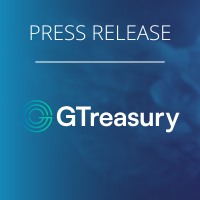 https://treasuryxl.com/wp-content/uploads/2025/03/GTreasury-BLOGS-featured-8.png
200
200
treasuryXL
https://treasuryxl.com/wp-content/uploads/2018/07/treasuryXL-logo-300x56.png
treasuryXL2025-03-18 11:45:582025-03-18 11:45:58GTreasury Redefines Treasury Management with Solutions That Adapt to Every Stage of Business Maturity
https://treasuryxl.com/wp-content/uploads/2025/03/GTreasury-BLOGS-featured-8.png
200
200
treasuryXL
https://treasuryxl.com/wp-content/uploads/2018/07/treasuryXL-logo-300x56.png
treasuryXL2025-03-18 11:45:582025-03-18 11:45:58GTreasury Redefines Treasury Management with Solutions That Adapt to Every Stage of Business Maturity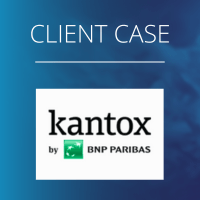 https://treasuryxl.com/wp-content/uploads/2025/03/KantoxBLOGS-featured-5.png
200
200
treasuryXL
https://treasuryxl.com/wp-content/uploads/2018/07/treasuryXL-logo-300x56.png
treasuryXL2025-03-17 07:00:402025-03-14 00:44:05How Profine achieved real-time FX risk management with Kantox
https://treasuryxl.com/wp-content/uploads/2025/03/KantoxBLOGS-featured-5.png
200
200
treasuryXL
https://treasuryxl.com/wp-content/uploads/2018/07/treasuryXL-logo-300x56.png
treasuryXL2025-03-17 07:00:402025-03-14 00:44:05How Profine achieved real-time FX risk management with Kantox https://treasuryxl.com/wp-content/uploads/2025/01/Ebury-BLOGS-featured-4.png
200
200
treasuryXL
https://treasuryxl.com/wp-content/uploads/2018/07/treasuryXL-logo-300x56.png
treasuryXL2025-03-11 07:00:252025-03-10 15:14:51Debunking the top 5 misconceptions about currency hedging
https://treasuryxl.com/wp-content/uploads/2025/01/Ebury-BLOGS-featured-4.png
200
200
treasuryXL
https://treasuryxl.com/wp-content/uploads/2018/07/treasuryXL-logo-300x56.png
treasuryXL2025-03-11 07:00:252025-03-10 15:14:51Debunking the top 5 misconceptions about currency hedging https://treasuryxl.com/wp-content/uploads/2025/03/Aviva-BLOGS-featured-5.png
200
200
treasuryXL
https://treasuryxl.com/wp-content/uploads/2018/07/treasuryXL-logo-300x56.png
treasuryXL2025-03-10 07:00:212025-04-24 17:19:48Liquidity Management in Treasury: Understanding and Balancing Liquidity with Investment Opportunities
https://treasuryxl.com/wp-content/uploads/2025/03/Aviva-BLOGS-featured-5.png
200
200
treasuryXL
https://treasuryxl.com/wp-content/uploads/2018/07/treasuryXL-logo-300x56.png
treasuryXL2025-03-10 07:00:212025-04-24 17:19:48Liquidity Management in Treasury: Understanding and Balancing Liquidity with Investment Opportunities https://treasuryxl.com/wp-content/uploads/2024/03/GTreasury-BLOGS-featured.png
200
200
treasuryXL
https://treasuryxl.com/wp-content/uploads/2018/07/treasuryXL-logo-300x56.png
treasuryXL2025-03-06 07:00:432025-03-05 16:33:49Strong Dollar vs. Weak Dollar: What Treasurers Need to Know
https://treasuryxl.com/wp-content/uploads/2024/03/GTreasury-BLOGS-featured.png
200
200
treasuryXL
https://treasuryxl.com/wp-content/uploads/2018/07/treasuryXL-logo-300x56.png
treasuryXL2025-03-06 07:00:432025-03-05 16:33:49Strong Dollar vs. Weak Dollar: What Treasurers Need to Know https://treasuryxl.com/wp-content/uploads/2024/12/Marianna-Template_BLOGS-Expert-featured.png
200
200
treasuryXL
https://treasuryxl.com/wp-content/uploads/2018/07/treasuryXL-logo-300x56.png
treasuryXL2025-02-26 07:00:242025-02-24 09:19:4112 Myths of Treasury | Part 4
https://treasuryxl.com/wp-content/uploads/2024/12/Marianna-Template_BLOGS-Expert-featured.png
200
200
treasuryXL
https://treasuryxl.com/wp-content/uploads/2018/07/treasuryXL-logo-300x56.png
treasuryXL2025-02-26 07:00:242025-02-24 09:19:4112 Myths of Treasury | Part 4 https://treasuryxl.com/wp-content/uploads/2025/02/Ebury-BLOGS-featured-5.png
200
200
treasuryXL
https://treasuryxl.com/wp-content/uploads/2018/07/treasuryXL-logo-300x56.png
treasuryXL2025-02-22 07:00:422025-02-21 09:35:11Everything you need to know to set a budget rate in 2025
https://treasuryxl.com/wp-content/uploads/2025/02/Ebury-BLOGS-featured-5.png
200
200
treasuryXL
https://treasuryxl.com/wp-content/uploads/2018/07/treasuryXL-logo-300x56.png
treasuryXL2025-02-22 07:00:422025-02-21 09:35:11Everything you need to know to set a budget rate in 2025 https://treasuryxl.com/wp-content/uploads/2025/02/KantoxBLOGS-featured-3.png
200
200
treasuryXL
https://treasuryxl.com/wp-content/uploads/2018/07/treasuryXL-logo-300x56.png
treasuryXL2025-02-17 07:00:562025-03-10 15:33:05Protecting Profit Margins from Currency Fluctuations
https://treasuryxl.com/wp-content/uploads/2025/02/KantoxBLOGS-featured-3.png
200
200
treasuryXL
https://treasuryxl.com/wp-content/uploads/2018/07/treasuryXL-logo-300x56.png
treasuryXL2025-02-17 07:00:562025-03-10 15:33:05Protecting Profit Margins from Currency Fluctuations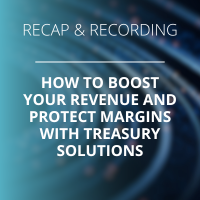 https://treasuryxl.com/wp-content/uploads/2025/02/LIVE-SESSION-1.png
200
200
treasuryXL
https://treasuryxl.com/wp-content/uploads/2018/07/treasuryXL-logo-300x56.png
treasuryXL2025-02-14 10:00:102025-02-13 16:25:36Recap & Recording: How to Boost Your Revenue and Protect Margins with Treasury Solutions
https://treasuryxl.com/wp-content/uploads/2025/02/LIVE-SESSION-1.png
200
200
treasuryXL
https://treasuryxl.com/wp-content/uploads/2018/07/treasuryXL-logo-300x56.png
treasuryXL2025-02-14 10:00:102025-02-13 16:25:36Recap & Recording: How to Boost Your Revenue and Protect Margins with Treasury Solutions https://treasuryxl.com/wp-content/uploads/2024/03/GTreasury-BLOGS-featured.png
200
200
treasuryXL
https://treasuryxl.com/wp-content/uploads/2018/07/treasuryXL-logo-300x56.png
treasuryXL2025-02-13 07:00:442025-02-10 14:32:10Tariffs, FX Volatility, and Treasury Uncertainty: 3 Ways to Navigate this New Normal
https://treasuryxl.com/wp-content/uploads/2024/03/GTreasury-BLOGS-featured.png
200
200
treasuryXL
https://treasuryxl.com/wp-content/uploads/2018/07/treasuryXL-logo-300x56.png
treasuryXL2025-02-13 07:00:442025-02-10 14:32:10Tariffs, FX Volatility, and Treasury Uncertainty: 3 Ways to Navigate this New Normal https://treasuryxl.com/wp-content/uploads/2025/02/LIVE-SESSION-.png
200
200
treasuryXL
https://treasuryxl.com/wp-content/uploads/2018/07/treasuryXL-logo-300x56.png
treasuryXL2025-02-10 08:00:392025-02-07 11:37:29Live Session: How to Boost Your Revenue and Protect Margins with Treasury Solutions
https://treasuryxl.com/wp-content/uploads/2025/02/LIVE-SESSION-.png
200
200
treasuryXL
https://treasuryxl.com/wp-content/uploads/2018/07/treasuryXL-logo-300x56.png
treasuryXL2025-02-10 08:00:392025-02-07 11:37:29Live Session: How to Boost Your Revenue and Protect Margins with Treasury Solutions https://treasuryxl.com/wp-content/uploads/2024/12/Marianna-Template_BLOGS-Expert-featured.png
200
200
treasuryXL
https://treasuryxl.com/wp-content/uploads/2018/07/treasuryXL-logo-300x56.png
treasuryXL2025-02-10 07:00:052025-02-06 11:30:5812 Myths of Treasury | Part 3
https://treasuryxl.com/wp-content/uploads/2024/12/Marianna-Template_BLOGS-Expert-featured.png
200
200
treasuryXL
https://treasuryxl.com/wp-content/uploads/2018/07/treasuryXL-logo-300x56.png
treasuryXL2025-02-10 07:00:052025-02-06 11:30:5812 Myths of Treasury | Part 3 https://treasuryxl.com/wp-content/uploads/2024/08/Aviva-BLOGS-featured-2.png
200
200
treasuryXL
https://treasuryxl.com/wp-content/uploads/2018/07/treasuryXL-logo-300x56.png
treasuryXL2025-02-04 07:00:032025-02-04 08:51:31Liquidity outlook for 2025
https://treasuryxl.com/wp-content/uploads/2024/08/Aviva-BLOGS-featured-2.png
200
200
treasuryXL
https://treasuryxl.com/wp-content/uploads/2018/07/treasuryXL-logo-300x56.png
treasuryXL2025-02-04 07:00:032025-02-04 08:51:31Liquidity outlook for 2025 https://treasuryxl.com/wp-content/uploads/2025/01/Ebury-BLOGS-featured-4.png
200
200
treasuryXL
https://treasuryxl.com/wp-content/uploads/2018/07/treasuryXL-logo-300x56.png
treasuryXL2025-01-28 07:00:562025-03-10 15:14:19Money at rest, money in motion & money at risk
https://treasuryxl.com/wp-content/uploads/2025/01/Ebury-BLOGS-featured-4.png
200
200
treasuryXL
https://treasuryxl.com/wp-content/uploads/2018/07/treasuryXL-logo-300x56.png
treasuryXL2025-01-28 07:00:562025-03-10 15:14:19Money at rest, money in motion & money at risk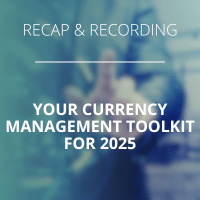 https://treasuryxl.com/wp-content/uploads/2025/01/LIVE-SESSION-Kantox-Recap.png
200
200
treasuryXL
https://treasuryxl.com/wp-content/uploads/2018/07/treasuryXL-logo-300x56.png
treasuryXL2025-01-24 10:04:242025-01-24 10:05:11Recap & Recording: Your Currency Management Toolkit for 2025
https://treasuryxl.com/wp-content/uploads/2025/01/LIVE-SESSION-Kantox-Recap.png
200
200
treasuryXL
https://treasuryxl.com/wp-content/uploads/2018/07/treasuryXL-logo-300x56.png
treasuryXL2025-01-24 10:04:242025-01-24 10:05:11Recap & Recording: Your Currency Management Toolkit for 2025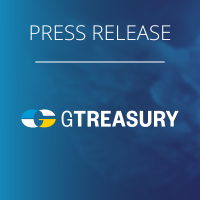 https://treasuryxl.com/wp-content/uploads/2024/11/GTreasury-BLOGS-featured-7.png
200
200
treasuryXL
https://treasuryxl.com/wp-content/uploads/2018/07/treasuryXL-logo-300x56.png
treasuryXL2025-01-21 09:20:562025-03-27 13:22:04GTreasury Makes Dublin Its Primary Development Hub
https://treasuryxl.com/wp-content/uploads/2024/11/GTreasury-BLOGS-featured-7.png
200
200
treasuryXL
https://treasuryxl.com/wp-content/uploads/2018/07/treasuryXL-logo-300x56.png
treasuryXL2025-01-21 09:20:562025-03-27 13:22:04GTreasury Makes Dublin Its Primary Development Hub https://treasuryxl.com/wp-content/uploads/2025/01/GPS-featured-1.png
200
200
treasuryXL
https://treasuryxl.com/wp-content/uploads/2018/07/treasuryXL-logo-300x56.png
treasuryXL2025-01-20 07:00:162025-01-15 15:21:11Press Release | Corpay, a global S&P 500 corporate payments company, completed the acquisition of GPS Capital Markets
https://treasuryxl.com/wp-content/uploads/2025/01/GPS-featured-1.png
200
200
treasuryXL
https://treasuryxl.com/wp-content/uploads/2018/07/treasuryXL-logo-300x56.png
treasuryXL2025-01-20 07:00:162025-01-15 15:21:11Press Release | Corpay, a global S&P 500 corporate payments company, completed the acquisition of GPS Capital Markets https://treasuryxl.com/wp-content/uploads/2025/01/LIVE-SESSION-Kantox-1.png
200
200
treasuryXL
https://treasuryxl.com/wp-content/uploads/2018/07/treasuryXL-logo-300x56.png
treasuryXL2025-01-15 10:00:472025-01-15 13:17:15Live Session: Your Currency Management Toolkit for 2025
https://treasuryxl.com/wp-content/uploads/2025/01/LIVE-SESSION-Kantox-1.png
200
200
treasuryXL
https://treasuryxl.com/wp-content/uploads/2018/07/treasuryXL-logo-300x56.png
treasuryXL2025-01-15 10:00:472025-01-15 13:17:15Live Session: Your Currency Management Toolkit for 2025 https://treasuryxl.com/wp-content/uploads/2025/01/Ebury-BLOGS-featured-3.png
200
200
treasuryXL
https://treasuryxl.com/wp-content/uploads/2018/07/treasuryXL-logo-300x56.png
treasuryXL2025-01-13 07:00:552025-01-13 10:19:04The biggest unknown quantity around Trump is tariffs, says Matthew Ryan
https://treasuryxl.com/wp-content/uploads/2025/01/Ebury-BLOGS-featured-3.png
200
200
treasuryXL
https://treasuryxl.com/wp-content/uploads/2018/07/treasuryXL-logo-300x56.png
treasuryXL2025-01-13 07:00:552025-01-13 10:19:04The biggest unknown quantity around Trump is tariffs, says Matthew Ryan https://treasuryxl.com/wp-content/uploads/2024/12/FIS-BLOGS-featured-4.png
200
200
treasuryXL
https://treasuryxl.com/wp-content/uploads/2018/07/treasuryXL-logo-300x56.png
treasuryXL2025-01-08 07:00:412025-01-07 10:39:33Unlocking Value: How TMS Delivers Measurable ROI for Corporate Treasury
https://treasuryxl.com/wp-content/uploads/2024/12/FIS-BLOGS-featured-4.png
200
200
treasuryXL
https://treasuryxl.com/wp-content/uploads/2018/07/treasuryXL-logo-300x56.png
treasuryXL2025-01-08 07:00:412025-01-07 10:39:33Unlocking Value: How TMS Delivers Measurable ROI for Corporate Treasury https://treasuryxl.com/wp-content/uploads/2024/12/Treasury-Chests-Featured.png
200
200
treasuryXL
https://treasuryxl.com/wp-content/uploads/2018/07/treasuryXL-logo-300x56.png
treasuryXL2024-12-24 07:00:362025-04-24 17:16:45Opening Treasury Chests!
https://treasuryxl.com/wp-content/uploads/2024/12/Treasury-Chests-Featured.png
200
200
treasuryXL
https://treasuryxl.com/wp-content/uploads/2018/07/treasuryXL-logo-300x56.png
treasuryXL2024-12-24 07:00:362025-04-24 17:16:45Opening Treasury Chests! https://treasuryxl.com/wp-content/uploads/2024/01/Harry_BLOGS-Expert-featured.png
200
200
treasuryXL
https://treasuryxl.com/wp-content/uploads/2018/07/treasuryXL-logo-300x56.png
treasuryXL2024-12-23 07:00:592024-12-20 08:19:13What is an FX Budget Rate?
https://treasuryxl.com/wp-content/uploads/2024/01/Harry_BLOGS-Expert-featured.png
200
200
treasuryXL
https://treasuryxl.com/wp-content/uploads/2018/07/treasuryXL-logo-300x56.png
treasuryXL2024-12-23 07:00:592024-12-20 08:19:13What is an FX Budget Rate? https://treasuryxl.com/wp-content/uploads/2024/08/Bound-BLOGS-featured-1.png
200
200
treasuryXL
https://treasuryxl.com/wp-content/uploads/2018/07/treasuryXL-logo-300x56.png
treasuryXL2024-12-16 07:00:042024-12-13 10:52:26FX Hedging for Beginners: Reduce Foreign Currency Risk
https://treasuryxl.com/wp-content/uploads/2024/08/Bound-BLOGS-featured-1.png
200
200
treasuryXL
https://treasuryxl.com/wp-content/uploads/2018/07/treasuryXL-logo-300x56.png
treasuryXL2024-12-16 07:00:042024-12-13 10:52:26FX Hedging for Beginners: Reduce Foreign Currency Risk https://treasuryxl.com/wp-content/uploads/2020/11/xe-24.png
768
1157
treasuryXL
https://treasuryxl.com/wp-content/uploads/2018/07/treasuryXL-logo-300x56.png
treasuryXL2024-11-26 07:00:292025-04-04 17:06:09What are BIC/ SWIFT codes, how do you find them, and how do they work?
https://treasuryxl.com/wp-content/uploads/2020/11/xe-24.png
768
1157
treasuryXL
https://treasuryxl.com/wp-content/uploads/2018/07/treasuryXL-logo-300x56.png
treasuryXL2024-11-26 07:00:292025-04-04 17:06:09What are BIC/ SWIFT codes, how do you find them, and how do they work? https://treasuryxl.com/wp-content/uploads/2024/03/GTreasury-BLOGS-featured.png
200
200
treasuryXL
https://treasuryxl.com/wp-content/uploads/2018/07/treasuryXL-logo-300x56.png
treasuryXL2024-11-25 07:00:542024-11-19 17:23:30How to Leverage Automation in your FX Exposure Management Strategy
https://treasuryxl.com/wp-content/uploads/2024/03/GTreasury-BLOGS-featured.png
200
200
treasuryXL
https://treasuryxl.com/wp-content/uploads/2018/07/treasuryXL-logo-300x56.png
treasuryXL2024-11-25 07:00:542024-11-19 17:23:30How to Leverage Automation in your FX Exposure Management Strategy https://treasuryxl.com/wp-content/uploads/2024/11/GTreasury-BLOGS-featured-7.png
200
200
treasuryXL
https://treasuryxl.com/wp-content/uploads/2018/07/treasuryXL-logo-300x56.png
treasuryXL2024-11-21 10:00:322025-03-27 13:21:17GTreasury and PNC Bank Announce Technology Integration to Benefit Shared Clients
https://treasuryxl.com/wp-content/uploads/2024/11/GTreasury-BLOGS-featured-7.png
200
200
treasuryXL
https://treasuryxl.com/wp-content/uploads/2018/07/treasuryXL-logo-300x56.png
treasuryXL2024-11-21 10:00:322025-03-27 13:21:17GTreasury and PNC Bank Announce Technology Integration to Benefit Shared Clients https://treasuryxl.com/wp-content/uploads/2024/01/Harry_BLOGS-Expert-featured.png
200
200
treasuryXL
https://treasuryxl.com/wp-content/uploads/2018/07/treasuryXL-logo-300x56.png
treasuryXL2024-11-19 07:00:072024-11-18 09:12:56Forward + Spot Strategy: Pros and Cons
https://treasuryxl.com/wp-content/uploads/2024/01/Harry_BLOGS-Expert-featured.png
200
200
treasuryXL
https://treasuryxl.com/wp-content/uploads/2018/07/treasuryXL-logo-300x56.png
treasuryXL2024-11-19 07:00:072024-11-18 09:12:56Forward + Spot Strategy: Pros and Cons https://treasuryxl.com/wp-content/uploads/2024/07/Dinesh-Template_BLOGS-Expert-featured.png
200
200
treasuryXL
https://treasuryxl.com/wp-content/uploads/2018/07/treasuryXL-logo-300x56.png
treasuryXL2024-11-18 07:00:312024-11-19 17:07:32Generative AI in Corporate Treasury
https://treasuryxl.com/wp-content/uploads/2024/07/Dinesh-Template_BLOGS-Expert-featured.png
200
200
treasuryXL
https://treasuryxl.com/wp-content/uploads/2018/07/treasuryXL-logo-300x56.png
treasuryXL2024-11-18 07:00:312024-11-19 17:07:32Generative AI in Corporate Treasury https://treasuryxl.com/wp-content/uploads/2024/10/Patricia-featured.png
200
200
treasuryXL
https://treasuryxl.com/wp-content/uploads/2018/07/treasuryXL-logo-300x56.png
treasuryXL2024-11-14 07:00:232024-11-14 08:32:38Advantages of Forex Market for Fast-Growing Companies
https://treasuryxl.com/wp-content/uploads/2024/10/Patricia-featured.png
200
200
treasuryXL
https://treasuryxl.com/wp-content/uploads/2018/07/treasuryXL-logo-300x56.png
treasuryXL2024-11-14 07:00:232024-11-14 08:32:38Advantages of Forex Market for Fast-Growing Companies https://treasuryxl.com/wp-content/uploads/2024/11/Jennifer-featured.png
200
200
treasuryXL
https://treasuryxl.com/wp-content/uploads/2018/07/treasuryXL-logo-300x56.png
treasuryXL2024-11-11 10:00:042024-11-26 11:20:34How treasurers should respond to the US election!
https://treasuryxl.com/wp-content/uploads/2024/11/Jennifer-featured.png
200
200
treasuryXL
https://treasuryxl.com/wp-content/uploads/2018/07/treasuryXL-logo-300x56.png
treasuryXL2024-11-11 10:00:042024-11-26 11:20:34How treasurers should respond to the US election! https://treasuryxl.com/wp-content/uploads/2024/08/Bound-BLOGS-featured-1.png
200
200
treasuryXL
https://treasuryxl.com/wp-content/uploads/2018/07/treasuryXL-logo-300x56.png
treasuryXL2024-11-11 07:00:532024-11-07 09:03:56Two sides of one coin: Hedging vs. Speculation
https://treasuryxl.com/wp-content/uploads/2024/08/Bound-BLOGS-featured-1.png
200
200
treasuryXL
https://treasuryxl.com/wp-content/uploads/2018/07/treasuryXL-logo-300x56.png
treasuryXL2024-11-11 07:00:532024-11-07 09:03:56Two sides of one coin: Hedging vs. Speculation https://treasuryxl.com/wp-content/uploads/2024/07/Bound-BLOGS-featured.png
200
200
treasuryXL
https://treasuryxl.com/wp-content/uploads/2018/07/treasuryXL-logo-300x56.png
treasuryXL2024-11-05 07:00:202024-10-31 16:12:09FX: Is hedging expensive?
https://treasuryxl.com/wp-content/uploads/2024/07/Bound-BLOGS-featured.png
200
200
treasuryXL
https://treasuryxl.com/wp-content/uploads/2018/07/treasuryXL-logo-300x56.png
treasuryXL2024-11-05 07:00:202024-10-31 16:12:09FX: Is hedging expensive? https://treasuryxl.com/wp-content/uploads/2024/10/Embat-BLOGS-featured-2.png
200
200
treasuryXL
https://treasuryxl.com/wp-content/uploads/2018/07/treasuryXL-logo-300x56.png
treasuryXL2024-11-04 10:00:282024-10-31 15:32:48How to mitigate exchange rate risk: a complete guide
https://treasuryxl.com/wp-content/uploads/2024/10/Embat-BLOGS-featured-2.png
200
200
treasuryXL
https://treasuryxl.com/wp-content/uploads/2018/07/treasuryXL-logo-300x56.png
treasuryXL2024-11-04 10:00:282024-10-31 15:32:48How to mitigate exchange rate risk: a complete guide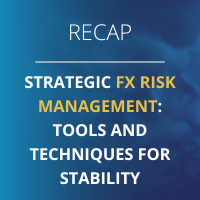 https://treasuryxl.com/wp-content/uploads/2024/09/Recap-Kantox-200x200-1.png
200
200
treasuryXL
https://treasuryxl.com/wp-content/uploads/2018/07/treasuryXL-logo-300x56.png
treasuryXL2024-10-08 10:20:182024-10-08 10:21:00RECAP & RECORDING | Strategic FX Risk Management: Tools and Techniques for Stability
https://treasuryxl.com/wp-content/uploads/2024/09/Recap-Kantox-200x200-1.png
200
200
treasuryXL
https://treasuryxl.com/wp-content/uploads/2018/07/treasuryXL-logo-300x56.png
treasuryXL2024-10-08 10:20:182024-10-08 10:21:00RECAP & RECORDING | Strategic FX Risk Management: Tools and Techniques for Stability https://treasuryxl.com/wp-content/uploads/2024/08/Bound-BLOGS-featured-1.png
200
200
treasuryXL
https://treasuryxl.com/wp-content/uploads/2018/07/treasuryXL-logo-300x56.png
treasuryXL2024-10-03 07:00:482024-09-30 15:17:08FX Hedging that is flexible enough for the real world
https://treasuryxl.com/wp-content/uploads/2024/08/Bound-BLOGS-featured-1.png
200
200
treasuryXL
https://treasuryxl.com/wp-content/uploads/2018/07/treasuryXL-logo-300x56.png
treasuryXL2024-10-03 07:00:482024-09-30 15:17:08FX Hedging that is flexible enough for the real world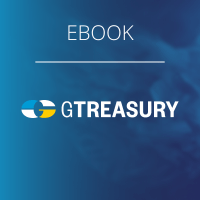 https://treasuryxl.com/wp-content/uploads/2024/09/GTreasury-BLOGS-featured-3.png
200
200
treasuryXL
https://treasuryxl.com/wp-content/uploads/2018/07/treasuryXL-logo-300x56.png
treasuryXL2024-09-30 07:00:282024-09-26 11:54:40eBook | Reducing the pain of payments
https://treasuryxl.com/wp-content/uploads/2024/09/GTreasury-BLOGS-featured-3.png
200
200
treasuryXL
https://treasuryxl.com/wp-content/uploads/2018/07/treasuryXL-logo-300x56.png
treasuryXL2024-09-30 07:00:282024-09-26 11:54:40eBook | Reducing the pain of payments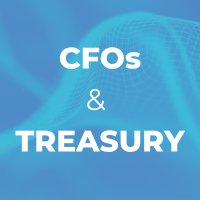 https://treasuryxl.com/wp-content/uploads/2024/09/Critical-Treasury-Tasks_200x200.png
200
200
treasuryXL
https://treasuryxl.com/wp-content/uploads/2018/07/treasuryXL-logo-300x56.png
treasuryXL2024-09-19 07:00:282024-09-23 09:34:30Critical Treasury Tasks Every CFO Needs to Know About
https://treasuryxl.com/wp-content/uploads/2024/09/Critical-Treasury-Tasks_200x200.png
200
200
treasuryXL
https://treasuryxl.com/wp-content/uploads/2018/07/treasuryXL-logo-300x56.png
treasuryXL2024-09-19 07:00:282024-09-23 09:34:30Critical Treasury Tasks Every CFO Needs to Know About https://treasuryxl.com/wp-content/uploads/2024/07/Bound-BLOGS-featured.png
200
200
treasuryXL
https://treasuryxl.com/wp-content/uploads/2018/07/treasuryXL-logo-300x56.png
treasuryXL2024-09-17 07:00:412024-08-26 10:08:36Currency Markets: Hedgers, Capital Markets and Investors
https://treasuryxl.com/wp-content/uploads/2024/07/Bound-BLOGS-featured.png
200
200
treasuryXL
https://treasuryxl.com/wp-content/uploads/2018/07/treasuryXL-logo-300x56.png
treasuryXL2024-09-17 07:00:412024-08-26 10:08:36Currency Markets: Hedgers, Capital Markets and Investors https://treasuryxl.com/wp-content/uploads/2024/08/Aviva-BLOGS-featured-2.png
200
200
treasuryXL
https://treasuryxl.com/wp-content/uploads/2018/07/treasuryXL-logo-300x56.png
treasuryXL2024-09-16 07:00:572024-09-12 09:03:33Finding the right blend | Optimising asset allocation in liquidity pools
https://treasuryxl.com/wp-content/uploads/2024/08/Aviva-BLOGS-featured-2.png
200
200
treasuryXL
https://treasuryxl.com/wp-content/uploads/2018/07/treasuryXL-logo-300x56.png
treasuryXL2024-09-16 07:00:572024-09-12 09:03:33Finding the right blend | Optimising asset allocation in liquidity pools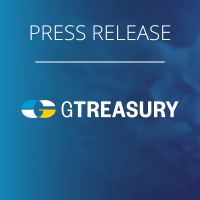 https://treasuryxl.com/wp-content/uploads/2024/03/GTreasury-BLOGS-featured-1.png
200
200
treasuryXL
https://treasuryxl.com/wp-content/uploads/2018/07/treasuryXL-logo-300x56.png
treasuryXL2024-09-09 10:48:162024-09-09 10:48:16Treasury Teams to Benefit from GTreasury’s Strategic CashAnalytics Acquisition
https://treasuryxl.com/wp-content/uploads/2024/03/GTreasury-BLOGS-featured-1.png
200
200
treasuryXL
https://treasuryxl.com/wp-content/uploads/2018/07/treasuryXL-logo-300x56.png
treasuryXL2024-09-09 10:48:162024-09-09 10:48:16Treasury Teams to Benefit from GTreasury’s Strategic CashAnalytics Acquisition https://treasuryxl.com/wp-content/uploads/2024/07/GTreasury-BLOGS-featured-2.png
200
200
treasuryXL
https://treasuryxl.com/wp-content/uploads/2018/07/treasuryXL-logo-300x56.png
treasuryXL2024-09-04 07:00:232024-09-03 16:01:52Who Needs Payment Reconciliation Software?
https://treasuryxl.com/wp-content/uploads/2024/07/GTreasury-BLOGS-featured-2.png
200
200
treasuryXL
https://treasuryxl.com/wp-content/uploads/2018/07/treasuryXL-logo-300x56.png
treasuryXL2024-09-04 07:00:232024-09-03 16:01:52Who Needs Payment Reconciliation Software? https://treasuryxl.com/wp-content/uploads/2024/08/Aviva-BLOGS-featured-2.png
200
200
treasuryXL
https://treasuryxl.com/wp-content/uploads/2018/07/treasuryXL-logo-300x56.png
treasuryXL2024-08-29 07:00:482024-08-29 13:57:26How much Liquidity do I need?
https://treasuryxl.com/wp-content/uploads/2024/08/Aviva-BLOGS-featured-2.png
200
200
treasuryXL
https://treasuryxl.com/wp-content/uploads/2018/07/treasuryXL-logo-300x56.png
treasuryXL2024-08-29 07:00:482024-08-29 13:57:26How much Liquidity do I need? https://treasuryxl.com/wp-content/uploads/2024/08/Bound-BLOGS-featured-1.png
200
200
treasuryXL
https://treasuryxl.com/wp-content/uploads/2018/07/treasuryXL-logo-300x56.png
treasuryXL2024-08-27 07:00:552024-08-26 09:49:273 Step Plan to Mitigate FX Risks
https://treasuryxl.com/wp-content/uploads/2024/08/Bound-BLOGS-featured-1.png
200
200
treasuryXL
https://treasuryxl.com/wp-content/uploads/2018/07/treasuryXL-logo-300x56.png
treasuryXL2024-08-27 07:00:552024-08-26 09:49:273 Step Plan to Mitigate FX Risks https://treasuryxl.com/wp-content/uploads/2024/03/GTreasury-BLOGS-featured-1.png
200
200
treasuryXL
https://treasuryxl.com/wp-content/uploads/2018/07/treasuryXL-logo-300x56.png
treasuryXL2024-08-19 10:42:372024-09-09 10:48:58GTreasury Continues Adding to its ClearConnect Gateway with New Banks and a Partnership
https://treasuryxl.com/wp-content/uploads/2024/03/GTreasury-BLOGS-featured-1.png
200
200
treasuryXL
https://treasuryxl.com/wp-content/uploads/2018/07/treasuryXL-logo-300x56.png
treasuryXL2024-08-19 10:42:372024-09-09 10:48:58GTreasury Continues Adding to its ClearConnect Gateway with New Banks and a Partnership https://treasuryxl.com/wp-content/uploads/2024/07/GTreasury-BLOGS-featured-2.png
200
200
treasuryXL
https://treasuryxl.com/wp-content/uploads/2018/07/treasuryXL-logo-300x56.png
treasuryXL2024-08-19 07:00:542024-08-16 09:18:094 Tools to Get Ahead of Unpredictable Markets
https://treasuryxl.com/wp-content/uploads/2024/07/GTreasury-BLOGS-featured-2.png
200
200
treasuryXL
https://treasuryxl.com/wp-content/uploads/2018/07/treasuryXL-logo-300x56.png
treasuryXL2024-08-19 07:00:542024-08-16 09:18:094 Tools to Get Ahead of Unpredictable Markets https://treasuryxl.com/wp-content/uploads/2024/07/GTreasury-BLOGS-featured-2.png
200
200
treasuryXL
https://treasuryxl.com/wp-content/uploads/2018/07/treasuryXL-logo-300x56.png
treasuryXL2024-07-31 07:00:252024-08-01 08:51:385 Ways to Improve Your Cash Visibility
https://treasuryxl.com/wp-content/uploads/2024/07/GTreasury-BLOGS-featured-2.png
200
200
treasuryXL
https://treasuryxl.com/wp-content/uploads/2018/07/treasuryXL-logo-300x56.png
treasuryXL2024-07-31 07:00:252024-08-01 08:51:385 Ways to Improve Your Cash Visibility https://treasuryxl.com/wp-content/uploads/2024/07/Ebury-BLOGS-featured-2.png
200
200
treasuryXL
https://treasuryxl.com/wp-content/uploads/2018/07/treasuryXL-logo-300x56.png
treasuryXL2024-07-30 07:00:072024-08-01 09:24:26Want to increase the effectiveness of your hedging strategy and maximise profitability?
https://treasuryxl.com/wp-content/uploads/2024/07/Ebury-BLOGS-featured-2.png
200
200
treasuryXL
https://treasuryxl.com/wp-content/uploads/2018/07/treasuryXL-logo-300x56.png
treasuryXL2024-07-30 07:00:072024-08-01 09:24:26Want to increase the effectiveness of your hedging strategy and maximise profitability? https://treasuryxl.com/wp-content/uploads/2024/07/Dinesh-Template_BLOGS-Expert-featured.png
200
200
treasuryXL
https://treasuryxl.com/wp-content/uploads/2018/07/treasuryXL-logo-300x56.png
treasuryXL2024-07-29 07:00:522024-11-04 15:27:58The Future of AI and Treasury
https://treasuryxl.com/wp-content/uploads/2024/07/Dinesh-Template_BLOGS-Expert-featured.png
200
200
treasuryXL
https://treasuryxl.com/wp-content/uploads/2018/07/treasuryXL-logo-300x56.png
treasuryXL2024-07-29 07:00:522024-11-04 15:27:58The Future of AI and Treasury https://treasuryxl.com/wp-content/uploads/2024/07/Bound-BLOGS-featured.png
200
200
treasuryXL
https://treasuryxl.com/wp-content/uploads/2018/07/treasuryXL-logo-300x56.png
treasuryXL2024-07-18 07:00:332024-07-15 10:49:51Where Are Foreign Exchange Rates Headed?
https://treasuryxl.com/wp-content/uploads/2024/07/Bound-BLOGS-featured.png
200
200
treasuryXL
https://treasuryxl.com/wp-content/uploads/2018/07/treasuryXL-logo-300x56.png
treasuryXL2024-07-18 07:00:332024-07-15 10:49:51Where Are Foreign Exchange Rates Headed? https://treasuryxl.com/wp-content/uploads/2024/07/Aviva-Investord.png
200
200
treasuryXL
https://treasuryxl.com/wp-content/uploads/2018/07/treasuryXL-logo-300x56.png
treasuryXL2024-07-17 07:00:522024-07-16 15:56:37treasuryXL and Aviva Investors announce Premium Partnership
https://treasuryxl.com/wp-content/uploads/2024/07/Aviva-Investord.png
200
200
treasuryXL
https://treasuryxl.com/wp-content/uploads/2018/07/treasuryXL-logo-300x56.png
treasuryXL2024-07-17 07:00:522024-07-16 15:56:37treasuryXL and Aviva Investors announce Premium Partnership https://treasuryxl.com/wp-content/uploads/2024/07/Currencycast-KantoxBLOGS-featured-3.png
200
200
treasuryXL
https://treasuryxl.com/wp-content/uploads/2018/07/treasuryXL-logo-300x56.png
treasuryXL2024-07-10 07:00:572024-07-12 16:09:00CurrencyCast: FX Lessons from Merck & Hermès: How Finance Teams Fuel Success
https://treasuryxl.com/wp-content/uploads/2024/07/Currencycast-KantoxBLOGS-featured-3.png
200
200
treasuryXL
https://treasuryxl.com/wp-content/uploads/2018/07/treasuryXL-logo-300x56.png
treasuryXL2024-07-10 07:00:572024-07-12 16:09:00CurrencyCast: FX Lessons from Merck & Hermès: How Finance Teams Fuel Success https://treasuryxl.com/wp-content/uploads/2024/05/Zhanna-Template_BLOGS-Expert-featured.png
200
200
treasuryXL
https://treasuryxl.com/wp-content/uploads/2018/07/treasuryXL-logo-300x56.png
treasuryXL2024-07-09 07:00:502024-11-27 08:51:17Treasury Management in Multinational Corporations
https://treasuryxl.com/wp-content/uploads/2024/05/Zhanna-Template_BLOGS-Expert-featured.png
200
200
treasuryXL
https://treasuryxl.com/wp-content/uploads/2018/07/treasuryXL-logo-300x56.png
treasuryXL2024-07-09 07:00:502024-11-27 08:51:17Treasury Management in Multinational Corporations https://treasuryxl.com/wp-content/uploads/2024/06/Currencycast-KantoxBLOGS-featured-2.png
200
200
treasuryXL
https://treasuryxl.com/wp-content/uploads/2018/07/treasuryXL-logo-300x56.png
treasuryXL2024-06-26 07:00:162024-06-26 11:57:43CurrencyCast: The Future of the Payments Landscape
https://treasuryxl.com/wp-content/uploads/2024/06/Currencycast-KantoxBLOGS-featured-2.png
200
200
treasuryXL
https://treasuryxl.com/wp-content/uploads/2018/07/treasuryXL-logo-300x56.png
treasuryXL2024-06-26 07:00:162024-06-26 11:57:43CurrencyCast: The Future of the Payments Landscape https://treasuryxl.com/wp-content/uploads/2024/06/Bound-200.png
200
200
treasuryXL
https://treasuryxl.com/wp-content/uploads/2018/07/treasuryXL-logo-300x56.png
treasuryXL2024-06-20 07:00:422024-06-19 17:08:23treasuryXL and Bound Announce Premium Partnership
https://treasuryxl.com/wp-content/uploads/2024/06/Bound-200.png
200
200
treasuryXL
https://treasuryxl.com/wp-content/uploads/2018/07/treasuryXL-logo-300x56.png
treasuryXL2024-06-20 07:00:422024-06-19 17:08:23treasuryXL and Bound Announce Premium Partnership https://treasuryxl.com/wp-content/uploads/2024/06/Currencycast-KantoxBLOGS-featured-1.png
200
200
treasuryXL
https://treasuryxl.com/wp-content/uploads/2018/07/treasuryXL-logo-300x56.png
treasuryXL2024-06-12 07:00:582024-08-19 09:01:35CurrencyCast: Treasury Management During Volatile Times in the Asia/Pacific Region with Damian Glendinning
https://treasuryxl.com/wp-content/uploads/2024/06/Currencycast-KantoxBLOGS-featured-1.png
200
200
treasuryXL
https://treasuryxl.com/wp-content/uploads/2018/07/treasuryXL-logo-300x56.png
treasuryXL2024-06-12 07:00:582024-08-19 09:01:35CurrencyCast: Treasury Management During Volatile Times in the Asia/Pacific Region with Damian Glendinning https://treasuryxl.com/wp-content/uploads/2024/04/Harry_BLOGS-Expert-featured-1.png
200
200
treasuryXL
https://treasuryxl.com/wp-content/uploads/2018/07/treasuryXL-logo-300x56.png
treasuryXL2024-06-06 07:00:342024-07-23 10:43:22Avoiding the Pitfalls of Over-Hedging in FX Trading
https://treasuryxl.com/wp-content/uploads/2024/04/Harry_BLOGS-Expert-featured-1.png
200
200
treasuryXL
https://treasuryxl.com/wp-content/uploads/2018/07/treasuryXL-logo-300x56.png
treasuryXL2024-06-06 07:00:342024-07-23 10:43:22Avoiding the Pitfalls of Over-Hedging in FX Trading https://treasuryxl.com/wp-content/uploads/2024/03/GTreasury-BLOGS-featured-1.png
200
200
treasuryXL
https://treasuryxl.com/wp-content/uploads/2018/07/treasuryXL-logo-300x56.png
treasuryXL2024-05-29 10:32:002024-05-29 10:35:11GTreasury Continues to Expand ClearConnect Gateway, Adds BMO
https://treasuryxl.com/wp-content/uploads/2024/03/GTreasury-BLOGS-featured-1.png
200
200
treasuryXL
https://treasuryxl.com/wp-content/uploads/2018/07/treasuryXL-logo-300x56.png
treasuryXL2024-05-29 10:32:002024-05-29 10:35:11GTreasury Continues to Expand ClearConnect Gateway, Adds BMO https://treasuryxl.com/wp-content/uploads/2024/05/Kopie-van-Currencycast-KantoxBLOGS-featured-1.png
200
200
treasuryXL
https://treasuryxl.com/wp-content/uploads/2018/07/treasuryXL-logo-300x56.png
treasuryXL2024-05-29 07:00:222024-08-19 09:01:32CurrencyCast: How to manage emerging market currencies with Danilo Gonzalez
https://treasuryxl.com/wp-content/uploads/2024/05/Kopie-van-Currencycast-KantoxBLOGS-featured-1.png
200
200
treasuryXL
https://treasuryxl.com/wp-content/uploads/2018/07/treasuryXL-logo-300x56.png
treasuryXL2024-05-29 07:00:222024-08-19 09:01:32CurrencyCast: How to manage emerging market currencies with Danilo Gonzalez https://treasuryxl.com/wp-content/uploads/2024/05/Kopie-van-Currencycast-KantoxBLOGS-featured.png
200
200
treasuryXL
https://treasuryxl.com/wp-content/uploads/2018/07/treasuryXL-logo-300x56.png
treasuryXL2024-05-15 07:00:302024-08-19 09:01:24CurrencyCast: Why FX Risk Management Matters in B2B Payments
https://treasuryxl.com/wp-content/uploads/2024/05/Kopie-van-Currencycast-KantoxBLOGS-featured.png
200
200
treasuryXL
https://treasuryxl.com/wp-content/uploads/2018/07/treasuryXL-logo-300x56.png
treasuryXL2024-05-15 07:00:302024-08-19 09:01:24CurrencyCast: Why FX Risk Management Matters in B2B Payments https://treasuryxl.com/wp-content/uploads/2024/05/Events-featured_MONEY-2020.png
200
200
treasuryXL
https://treasuryxl.com/wp-content/uploads/2018/07/treasuryXL-logo-300x56.png
treasuryXL2024-05-14 09:51:092024-05-14 09:54:26Money20/20 Amsterdam is waiting for you
https://treasuryxl.com/wp-content/uploads/2024/05/Events-featured_MONEY-2020.png
200
200
treasuryXL
https://treasuryxl.com/wp-content/uploads/2018/07/treasuryXL-logo-300x56.png
treasuryXL2024-05-14 09:51:092024-05-14 09:54:26Money20/20 Amsterdam is waiting for you https://treasuryxl.com/wp-content/uploads/2024/05/Currencycast-KantoxBLOGS-featured.png
200
200
treasuryXL
https://treasuryxl.com/wp-content/uploads/2018/07/treasuryXL-logo-300x56.png
treasuryXL2024-05-01 09:25:242024-05-01 09:25:24CurrencyCast: What Are The Key Skills Of The Strategic Treasurer with Pieter de Kiewit
https://treasuryxl.com/wp-content/uploads/2024/05/Currencycast-KantoxBLOGS-featured.png
200
200
treasuryXL
https://treasuryxl.com/wp-content/uploads/2018/07/treasuryXL-logo-300x56.png
treasuryXL2024-05-01 09:25:242024-05-01 09:25:24CurrencyCast: What Are The Key Skills Of The Strategic Treasurer with Pieter de Kiewit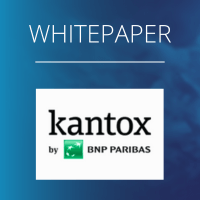 https://treasuryxl.com/wp-content/uploads/2024/03/KantoxBLOGS-featured-2.png
200
200
treasuryXL
https://treasuryxl.com/wp-content/uploads/2018/07/treasuryXL-logo-300x56.png
treasuryXL2024-03-25 07:00:412024-03-19 10:58:24Currency Management priorities for 2024: Centralixe FX & Integrate FX into Liquidity Management
https://treasuryxl.com/wp-content/uploads/2024/03/KantoxBLOGS-featured-2.png
200
200
treasuryXL
https://treasuryxl.com/wp-content/uploads/2018/07/treasuryXL-logo-300x56.png
treasuryXL2024-03-25 07:00:412024-03-19 10:58:24Currency Management priorities for 2024: Centralixe FX & Integrate FX into Liquidity Management https://treasuryxl.com/wp-content/uploads/2024/03/Grain-BLOGS-featured-1.png
200
200
treasuryXL
https://treasuryxl.com/wp-content/uploads/2018/07/treasuryXL-logo-300x56.png
treasuryXL2024-03-20 07:00:232024-07-03 11:11:45Mastering Cross-Currency Transactions Understanding FX Risks and Strategies
https://treasuryxl.com/wp-content/uploads/2024/03/Grain-BLOGS-featured-1.png
200
200
treasuryXL
https://treasuryxl.com/wp-content/uploads/2018/07/treasuryXL-logo-300x56.png
treasuryXL2024-03-20 07:00:232024-07-03 11:11:45Mastering Cross-Currency Transactions Understanding FX Risks and Strategies https://treasuryxl.com/wp-content/uploads/2024/03/GTreasury-BLOGS-featured.png
200
200
treasuryXL
https://treasuryxl.com/wp-content/uploads/2018/07/treasuryXL-logo-300x56.png
treasuryXL2024-03-19 07:00:532024-03-14 05:46:23How Should Treasurers Think About Real-Time Data?
https://treasuryxl.com/wp-content/uploads/2024/03/GTreasury-BLOGS-featured.png
200
200
treasuryXL
https://treasuryxl.com/wp-content/uploads/2018/07/treasuryXL-logo-300x56.png
treasuryXL2024-03-19 07:00:532024-03-14 05:46:23How Should Treasurers Think About Real-Time Data? https://treasuryxl.com/wp-content/uploads/2024/03/GTreasury-BLOGS-featured-1.png
200
200
treasuryXL
https://treasuryxl.com/wp-content/uploads/2018/07/treasuryXL-logo-300x56.png
treasuryXL2024-03-14 10:14:282024-03-14 10:14:28GTreasury Extends Global Banking API Connectivity Suite into APAC
https://treasuryxl.com/wp-content/uploads/2024/03/GTreasury-BLOGS-featured-1.png
200
200
treasuryXL
https://treasuryxl.com/wp-content/uploads/2018/07/treasuryXL-logo-300x56.png
treasuryXL2024-03-14 10:14:282024-03-14 10:14:28GTreasury Extends Global Banking API Connectivity Suite into APAC https://treasuryxl.com/wp-content/uploads/2024/02/Kopie-van-KantoxBLOGS-featured.png
200
200
treasuryXL
https://treasuryxl.com/wp-content/uploads/2018/07/treasuryXL-logo-300x56.png
treasuryXL2024-03-06 07:00:342024-03-06 11:29:58From chaos to control: a roadmap to achieving group-wide FX centralisation
https://treasuryxl.com/wp-content/uploads/2024/02/Kopie-van-KantoxBLOGS-featured.png
200
200
treasuryXL
https://treasuryxl.com/wp-content/uploads/2018/07/treasuryXL-logo-300x56.png
treasuryXL2024-03-06 07:00:342024-03-06 11:29:58From chaos to control: a roadmap to achieving group-wide FX centralisation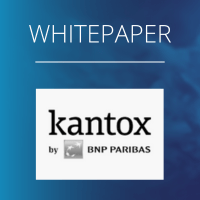 https://treasuryxl.com/wp-content/uploads/2024/02/KantoxBLOGS-featured-1.png
200
200
treasuryXL
https://treasuryxl.com/wp-content/uploads/2018/07/treasuryXL-logo-300x56.png
treasuryXL2024-02-22 07:00:172024-02-20 16:27:23Currency Management priorities for 2024: Optimize forward points & optimise exposure netting
https://treasuryxl.com/wp-content/uploads/2024/02/KantoxBLOGS-featured-1.png
200
200
treasuryXL
https://treasuryxl.com/wp-content/uploads/2018/07/treasuryXL-logo-300x56.png
treasuryXL2024-02-22 07:00:172024-02-20 16:27:23Currency Management priorities for 2024: Optimize forward points & optimise exposure netting https://treasuryxl.com/wp-content/uploads/2024/02/Ebury-BLOGS-featured-1.png
200
200
treasuryXL
https://treasuryxl.com/wp-content/uploads/2018/07/treasuryXL-logo-300x56.png
treasuryXL2024-02-12 07:00:542024-06-06 09:36:31Manage Your Currency Exposure like a Pro
https://treasuryxl.com/wp-content/uploads/2024/02/Ebury-BLOGS-featured-1.png
200
200
treasuryXL
https://treasuryxl.com/wp-content/uploads/2018/07/treasuryXL-logo-300x56.png
treasuryXL2024-02-12 07:00:542024-06-06 09:36:31Manage Your Currency Exposure like a Pro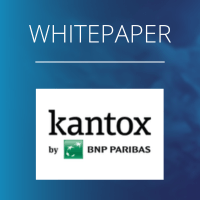 https://treasuryxl.com/wp-content/uploads/2024/01/KantoxBLOGS-featured.png
200
200
treasuryXL
https://treasuryxl.com/wp-content/uploads/2018/07/treasuryXL-logo-300x56.png
treasuryXL2024-02-08 07:00:182024-02-08 09:42:40Currency Management priorities for 2024
https://treasuryxl.com/wp-content/uploads/2024/01/KantoxBLOGS-featured.png
200
200
treasuryXL
https://treasuryxl.com/wp-content/uploads/2018/07/treasuryXL-logo-300x56.png
treasuryXL2024-02-08 07:00:182024-02-08 09:42:40Currency Management priorities for 2024 https://treasuryxl.com/wp-content/uploads/2024/02/GTreasury-Template_BLOGS-featured-1.png
200
200
treasuryXL
https://treasuryxl.com/wp-content/uploads/2018/07/treasuryXL-logo-300x56.png
treasuryXL2024-02-06 07:00:552024-02-02 14:34:36How One Treasury Team is Saving Millions with its New FX Netting Strategy
https://treasuryxl.com/wp-content/uploads/2024/02/GTreasury-Template_BLOGS-featured-1.png
200
200
treasuryXL
https://treasuryxl.com/wp-content/uploads/2018/07/treasuryXL-logo-300x56.png
treasuryXL2024-02-06 07:00:552024-02-02 14:34:36How One Treasury Team is Saving Millions with its New FX Netting Strategy https://treasuryxl.com/wp-content/uploads/2024/02/Top-3.png
200
200
treasuryXL
https://treasuryxl.com/wp-content/uploads/2018/07/treasuryXL-logo-300x56.png
treasuryXL2024-02-05 09:59:392024-02-05 10:00:50January’s best-read Articles on treasuryXL
https://treasuryxl.com/wp-content/uploads/2024/02/Top-3.png
200
200
treasuryXL
https://treasuryxl.com/wp-content/uploads/2018/07/treasuryXL-logo-300x56.png
treasuryXL2024-02-05 09:59:392024-02-05 10:00:50January’s best-read Articles on treasuryXL https://treasuryxl.com/wp-content/uploads/2024/01/Harry_BLOGS-Expert-featured.png
200
200
treasuryXL
https://treasuryxl.com/wp-content/uploads/2018/07/treasuryXL-logo-300x56.png
treasuryXL2024-01-23 07:00:382024-06-06 15:43:57What is Transaction Risk?
https://treasuryxl.com/wp-content/uploads/2024/01/Harry_BLOGS-Expert-featured.png
200
200
treasuryXL
https://treasuryxl.com/wp-content/uploads/2018/07/treasuryXL-logo-300x56.png
treasuryXL2024-01-23 07:00:382024-06-06 15:43:57What is Transaction Risk? https://treasuryxl.com/wp-content/uploads/2024/01/Kopie-van-Poll-tXL.png
200
200
treasuryXL
https://treasuryxl.com/wp-content/uploads/2018/07/treasuryXL-logo-300x56.png
treasuryXL2024-01-11 07:00:482024-01-10 16:53:04The Top 5 Most Popular Articles of 2023 on treasuryXL!
https://treasuryxl.com/wp-content/uploads/2024/01/Kopie-van-Poll-tXL.png
200
200
treasuryXL
https://treasuryxl.com/wp-content/uploads/2018/07/treasuryXL-logo-300x56.png
treasuryXL2024-01-11 07:00:482024-01-10 16:53:04The Top 5 Most Popular Articles of 2023 on treasuryXL! https://treasuryxl.com/wp-content/uploads/2023/12/Currencycast-200-2e.png
200
200
treasuryXL
https://treasuryxl.com/wp-content/uploads/2018/07/treasuryXL-logo-300x56.png
treasuryXL2024-01-02 07:00:492023-12-22 13:55:02The Relationship Manager Role of Modern Treasurers
https://treasuryxl.com/wp-content/uploads/2023/12/Currencycast-200-2e.png
200
200
treasuryXL
https://treasuryxl.com/wp-content/uploads/2018/07/treasuryXL-logo-300x56.png
treasuryXL2024-01-02 07:00:492023-12-22 13:55:02The Relationship Manager Role of Modern Treasurers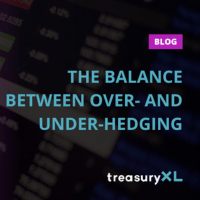 https://treasuryxl.com/wp-content/uploads/2023/12/Harry-Hedging-200.png
200
200
treasuryXL
https://treasuryxl.com/wp-content/uploads/2018/07/treasuryXL-logo-300x56.png
treasuryXL2023-12-21 07:00:392024-06-18 11:43:49The Balance between Over- and Under-Hedging
https://treasuryxl.com/wp-content/uploads/2023/12/Harry-Hedging-200.png
200
200
treasuryXL
https://treasuryxl.com/wp-content/uploads/2018/07/treasuryXL-logo-300x56.png
treasuryXL2023-12-21 07:00:392024-06-18 11:43:49The Balance between Over- and Under-Hedging https://treasuryxl.com/wp-content/uploads/2023/12/Kantox-200-4-ways.png
200
200
treasuryXL
https://treasuryxl.com/wp-content/uploads/2018/07/treasuryXL-logo-300x56.png
treasuryXL2023-12-14 07:00:332023-12-12 09:31:524 Ways To Battle Selective Hedging For Strong Corporate Governance
https://treasuryxl.com/wp-content/uploads/2023/12/Kantox-200-4-ways.png
200
200
treasuryXL
https://treasuryxl.com/wp-content/uploads/2018/07/treasuryXL-logo-300x56.png
treasuryXL2023-12-14 07:00:332023-12-12 09:31:524 Ways To Battle Selective Hedging For Strong Corporate Governance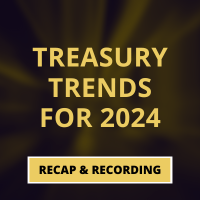 https://treasuryxl.com/wp-content/uploads/2023/12/Treasury-Trends-2024_RECORDING-1.png
200
200
treasuryXL
https://treasuryxl.com/wp-content/uploads/2018/07/treasuryXL-logo-300x56.png
treasuryXL2023-12-06 08:00:482023-12-06 13:29:32Recap & Recording | The Treasury Trends for 2024
https://treasuryxl.com/wp-content/uploads/2023/12/Treasury-Trends-2024_RECORDING-1.png
200
200
treasuryXL
https://treasuryxl.com/wp-content/uploads/2018/07/treasuryXL-logo-300x56.png
treasuryXL2023-12-06 08:00:482023-12-06 13:29:32Recap & Recording | The Treasury Trends for 2024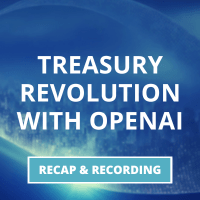 https://treasuryxl.com/wp-content/uploads/2023/11/Recap-Deloitte.png
200
200
treasuryXL
https://treasuryxl.com/wp-content/uploads/2018/07/treasuryXL-logo-300x56.png
treasuryXL2023-11-29 08:00:002024-11-04 15:28:04Recap & Recording | The Treasury revolution with OpenAI
https://treasuryxl.com/wp-content/uploads/2023/11/Recap-Deloitte.png
200
200
treasuryXL
https://treasuryxl.com/wp-content/uploads/2018/07/treasuryXL-logo-300x56.png
treasuryXL2023-11-29 08:00:002024-11-04 15:28:04Recap & Recording | The Treasury revolution with OpenAI https://treasuryxl.com/wp-content/uploads/2023/11/Grain-Finance-live-session.png
200
200
treasuryXL
https://treasuryxl.com/wp-content/uploads/2018/07/treasuryXL-logo-300x56.png
treasuryXL2023-11-23 08:00:032023-11-22 11:35:02Live Session | Turning Currency Exchange into a Competitive Advantage
https://treasuryxl.com/wp-content/uploads/2023/11/Grain-Finance-live-session.png
200
200
treasuryXL
https://treasuryxl.com/wp-content/uploads/2018/07/treasuryXL-logo-300x56.png
treasuryXL2023-11-23 08:00:032023-11-22 11:35:02Live Session | Turning Currency Exchange into a Competitive Advantage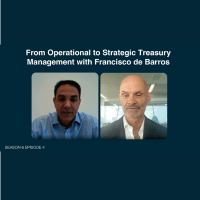 https://treasuryxl.com/wp-content/uploads/2023/11/Currencycast-200-s6e4.png
200
200
treasuryXL
https://treasuryxl.com/wp-content/uploads/2018/07/treasuryXL-logo-300x56.png
treasuryXL2023-11-21 07:00:012023-11-10 12:52:36From Operational To Strategic Treasury Management
https://treasuryxl.com/wp-content/uploads/2023/11/Currencycast-200-s6e4.png
200
200
treasuryXL
https://treasuryxl.com/wp-content/uploads/2018/07/treasuryXL-logo-300x56.png
treasuryXL2023-11-21 07:00:012023-11-10 12:52:36From Operational To Strategic Treasury Management https://treasuryxl.com/wp-content/uploads/2023/11/Treasury-Trends-2024.png
200
200
treasuryXL
https://treasuryxl.com/wp-content/uploads/2018/07/treasuryXL-logo-300x56.png
treasuryXL2023-11-15 07:30:142023-11-14 15:39:28Live Session | Treasury Trends for 2024
https://treasuryxl.com/wp-content/uploads/2023/11/Treasury-Trends-2024.png
200
200
treasuryXL
https://treasuryxl.com/wp-content/uploads/2018/07/treasuryXL-logo-300x56.png
treasuryXL2023-11-15 07:30:142023-11-14 15:39:28Live Session | Treasury Trends for 2024 https://treasuryxl.com/wp-content/uploads/2023/10/Currencycast-200-s6e3.png
200
200
treasuryXL
https://treasuryxl.com/wp-content/uploads/2018/07/treasuryXL-logo-300x56.png
treasuryXL2023-10-23 07:00:152023-10-19 16:59:51Centralisation of Treasury Operations with Patrick Kunz
https://treasuryxl.com/wp-content/uploads/2023/10/Currencycast-200-s6e3.png
200
200
treasuryXL
https://treasuryxl.com/wp-content/uploads/2018/07/treasuryXL-logo-300x56.png
treasuryXL2023-10-23 07:00:152023-10-19 16:59:51Centralisation of Treasury Operations with Patrick Kunz https://treasuryxl.com/wp-content/uploads/2023/10/Argentex-session-3.png
200
200
treasuryXL
https://treasuryxl.com/wp-content/uploads/2018/07/treasuryXL-logo-300x56.png
treasuryXL2023-10-19 07:00:082023-10-19 09:37:30Live Session | Rethinking Currency Risk Management
https://treasuryxl.com/wp-content/uploads/2023/10/Argentex-session-3.png
200
200
treasuryXL
https://treasuryxl.com/wp-content/uploads/2018/07/treasuryXL-logo-300x56.png
treasuryXL2023-10-19 07:00:082023-10-19 09:37:30Live Session | Rethinking Currency Risk Management https://treasuryxl.com/wp-content/uploads/2023/10/RECAP-Ebury.png
200
200
treasuryXL
https://treasuryxl.com/wp-content/uploads/2018/07/treasuryXL-logo-300x56.png
treasuryXL2023-10-12 07:00:582023-10-10 14:17:40Recap and Recording: Fluctuating Interest and Currency Markets: What to expect & do?
https://treasuryxl.com/wp-content/uploads/2023/10/RECAP-Ebury.png
200
200
treasuryXL
https://treasuryxl.com/wp-content/uploads/2018/07/treasuryXL-logo-300x56.png
treasuryXL2023-10-12 07:00:582023-10-10 14:17:40Recap and Recording: Fluctuating Interest and Currency Markets: What to expect & do?Risk Management topics
Search
Newsletter & eBook
Subscribe to our free weekly newsletter and receive your 41 pages ‘easy-to-read’ eBook, What is Treasury?
The latest treasuryXL articles
Great news! treasuryXL’s live session recordings are now available on Spotify

Go to
Partner Program
Contact us
treasuryXL
Kaldenkerkerweg 22
5913 AE Venlo
The Netherlands
Email: info @[email protected]
Telephone & WhatsApp: +31 6 2732 8942
Subscribe
Newsletter & eBook
Subscribe to our free weekly newsletter and receive your 41 pages ‘easy-to-read’ eBook, What is Treasury?




